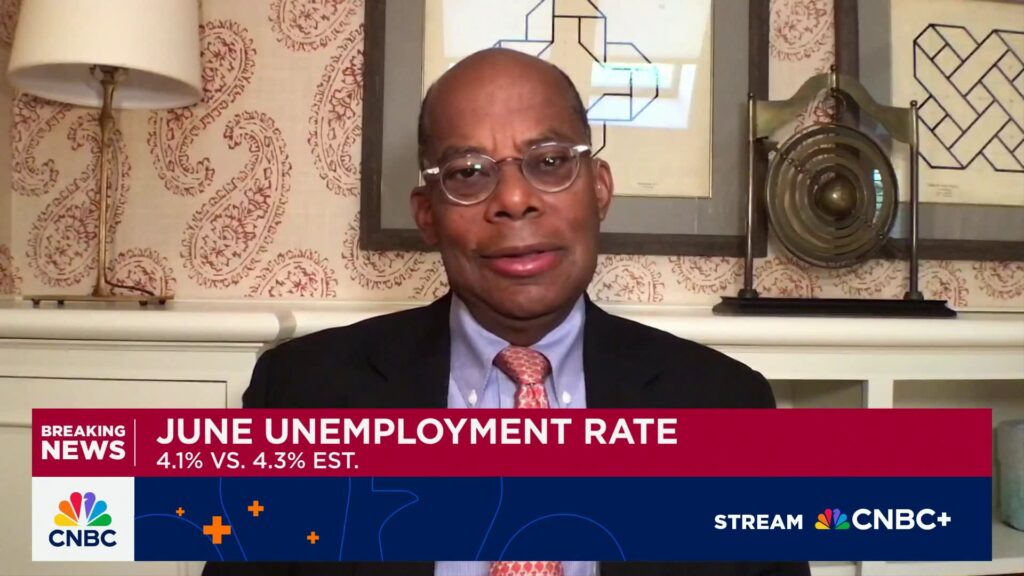
In a recent appearance on CNBC’s “Squawk Box,” Roger Ferguson, former Vice Chairman of the Federal Reserve, expressed surprise at the bond market’s muted response to calls for Federal Reserve Chair Jerome Powell’s resignation. Ferguson’s insights come amid a turbulent economic landscape, characterized by fluctuating job numbers and market volatility.
Ferguson, who served as vice chair from 1999 to 2006, shared his perspective on the current economic indicators and their influence on the bond market. His comments are particularly timely as they coincide with the release of the latest jobs report, which has shown mixed signals about the health of the U.S. economy.
Analyzing the Bond Market’s Reaction
The bond market, often considered a barometer for investor sentiment, has shown resilience despite the political and economic uncertainties surrounding Powell’s leadership. Ferguson noted that while some market participants expected a stronger reaction, the relative calm suggests a deeper confidence in the broader economic framework.
“I expected more of a revolt in the bond market given the calls for Powell’s resignation,” Ferguson remarked. “However, it seems investors are weighing the fundamentals more heavily than the political noise.”
Jobs Report and Economic Indicators
The latest jobs report, released just days before Ferguson’s interview, painted a complex picture of the U.S. labor market. While job creation numbers were robust, other metrics, such as labor force participation and wage growth, indicated areas of concern. These mixed signals have left economists and market analysts divided on the future trajectory of economic recovery.
According to Ferguson, the bond market’s reaction—or lack thereof—could be attributed to a cautious optimism about the Federal Reserve’s ability to navigate these challenges. “The Fed has tools at its disposal to manage inflation and support employment, and it seems investors are banking on that,” he explained.
Historical Context and Expert Opinions
The current situation draws parallels to past instances where the Federal Reserve faced political pressure. Historically, the Fed’s independence has been a cornerstone of its ability to implement monetary policy effectively. Experts argue that maintaining this independence is crucial for economic stability.
In the past, calls for the resignation of a Fed chair have been rare but not unheard of. During the 1980s, then-Fed Chair Paul Volcker faced criticism for his aggressive interest rate hikes aimed at curbing inflation. Despite the political backlash, Volcker’s policies are credited with stabilizing the U.S. economy in the long term.
“The Fed’s independence is vital for maintaining economic stability,” said Dr. Lisa Cook, an economist at Michigan State University. “Political interference can undermine confidence and lead to market instability.”
Implications for the Future
Looking ahead, the Federal Reserve’s policy decisions will remain under scrutiny as the U.S. economy continues to grapple with the effects of the pandemic, supply chain disruptions, and geopolitical tensions. Ferguson emphasized the importance of clear communication from the Fed to manage market expectations and maintain investor confidence.
“The key will be transparency and consistency in policy messaging,” Ferguson advised. “Investors need to trust that the Fed is committed to its dual mandate of promoting maximum employment and stable prices.”
As the debate over Powell’s leadership unfolds, the bond market’s response—or lack thereof—serves as a reminder of the complex interplay between politics, economics, and investor sentiment. The coming months will be critical in determining whether the current calm in the bond market is sustainable or merely a temporary reprieve.






